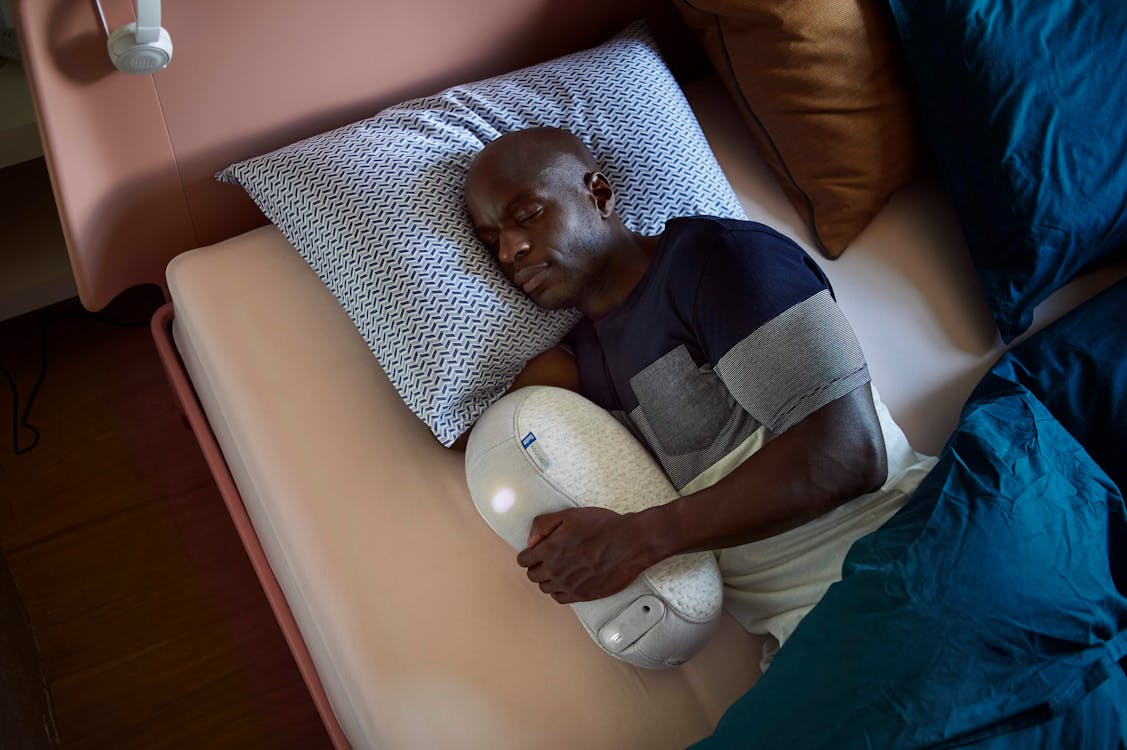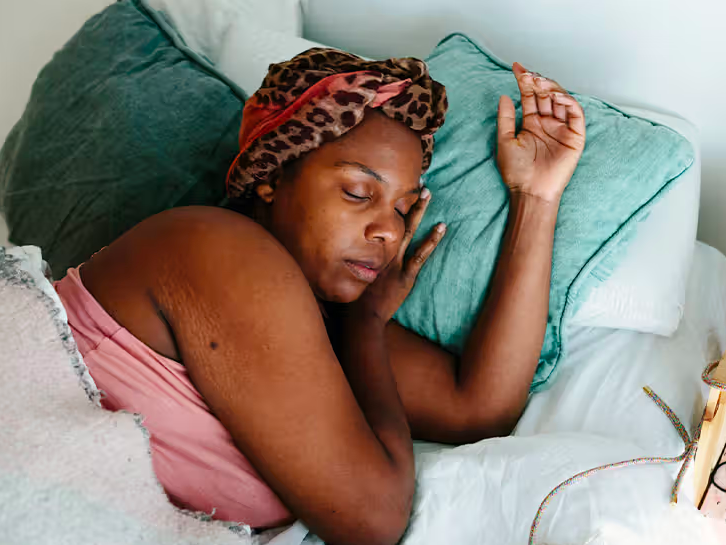


Date: 06 May 2025
Getting a good night’s sleep is vital for everyone, but for people living with diabetes, sleep affects more than just energy levels—it impacts blood sugar control, insulin sensitivity, and even mood. Poor sleep can make diabetes harder to manage, while unmanaged diabetes can disrupt sleep. This blog offers practical, expert-backed sleep advice for diabetics and introduces products from Pharmily to support restful nights.
Sleep is when the body restores itself. For diabetics, quality sleep supports hormonal balance, reduces insulin resistance, and helps stabilize blood glucose levels. Without enough rest, the body may release more cortisol, a stress hormone that can spike blood sugar and worsen insulin sensitivity. Consistently poor sleep increases the risk of complications and can lead to burnout in diabetes self-care.

Diabetes-related symptoms like frequent urination, neuropathic pain, and fluctuating blood sugar can disturb sleep. Nocturnal hypoglycemia can cause night sweats and sudden awakenings, while high blood sugar might lead to dehydration and restlessness. Additionally, complications like neuropathy may lead to discomfort that hinders sleep. Moreover, inadequate sleep can exacerbate insulin resistance, creating a challenging cycle.
Monitoring and managing blood glucose is essential. Avoid heavy meals and high-sugar snacks before bedtime. Consider a light, protein-rich snack if needed. Regularly checking blood sugar levels can help identify patterns and prevent nocturnal hypoglycemia.
Going to bed and waking up at the same times daily helps regulate your body's internal clock. This consistency can improve sleep quality and overall health. Even on weekends, try to stick to your schedule.
Ensure your bedroom is quiet, dark, and cool. Limit screen time before bed, as blue light can interfere with melatonin production. Consider using blackout curtains or a white noise machine if necessary.
Caffeine and nicotine are stimulants that can disrupt sleep. Avoid consuming them in the late afternoon or evening. While alcohol might make you feel sleepy initially, it can lead to fragmented sleep and affect your blood sugar level.
Practices like deep breathing, meditation, or gentle yoga can help calm the mind and prepare the body for sleep. Establishing a pre-sleep relaxation routine can signal to your body that it's time to wind down.
Pharmily offers a range of products to support better sleep for diabetics:
Struggling with occasional sleeplessness? Vicks ZzzQuil Sleep Aid Liquicaps provide a gentle yet effective solution to help you drift off into restful sleep. Formulated with Diphenhydramine HCl, a well-known sleep aid ingredient, these liquicaps work by reducing the time it takes to fall asleep without leaving you groggy in the morning.
Better You Magnesium Oil Sleep Spray is a unique, transdermal magnesium spray that promotes restful sleep and relaxation. Enriched with lavender and chamomile essential oils, this soothing formula helps reduce muscle tension, relieve stress, and support a calm mind for better sleep.
Chamomile is known for its calming properties, making it a great addition to your nighttime routine. Chamomile Herbal Tea is a centuries-old remedy for insomnia, restlessness, and anxiety. It works by increasing glycine levels in the body, a natural chemical that relaxes muscles and nerves.
NOW Magnesium Glycinate 200mg Tabs offer a convenient and effective way to meet your daily magnesium needs. Magnesium is an essential mineral that plays a critical role in muscle and nerve function, heart health, energy production, and sleep quality.
Unlike other forms of magnesium, magnesium glycinate is a highly bioavailable and easily absorbable form that is gentle on the stomach and does not cause digestive discomfort. Whether you're looking to reduce muscle cramps, improve sleep, or support heart health, this supplement is an excellent choice.
Please consult with a healthcare professional before starting any new supplement.
Sleep problems can result from high or low blood sugar levels, frequent urination, nerve pain, or even stress. Many diabetics also experience conditions like sleep apnea or restless legs syndrome that make restful sleep harder.
Yes. Inadequate sleep increases insulin resistance, which can cause your blood sugar levels to spike. It can also lead to unhealthy food choices and fatigue, making self-care more difficult.
Aim for 7–9 hours of sleep by setting a regular bedtime and wake-up schedule. Going to bed between 9:30–10:30 PM can allow enough rest while aligning with your body’s circadian rhythm.
Melatonin and magnesium are popular choices, but they should only be taken with medical guidance. Herbal teas like chamomile can also support relaxation without interfering with blood sugar levels.